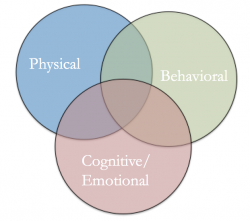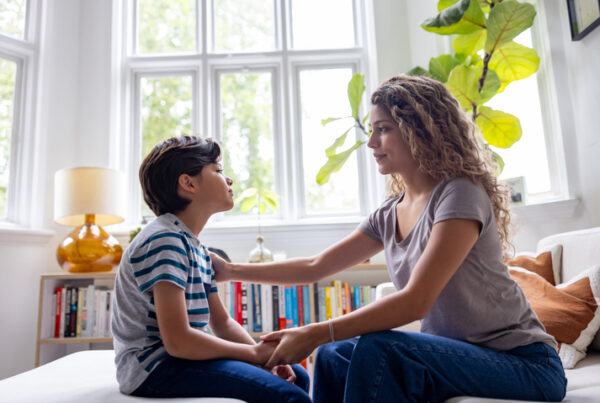 Almost everyone feels at least a bit of anxiety before speaking in front of a crowd or has some degree of nerves in unfamiliar social settings. The socially anxious person, however, has a debilitating level of anxiety, which interferes with their everyday functioning and causes them to modify their daily routine so as to avoid the stress of even small social interactions. Their experience of the stress of social anxiety is often characterized by its intensity, duration and effects. For the socially anxious, butterflies turn into nausea, sweating, diarrhea, and shortness of breath. The healthy fear that makes us prepare well for a talk becomes a debilitating anxiety about how others will perceive us. This leads to coping mechanisms like constantly avoiding social situations, always bringing friends to shield themselves, and drinking before an engagement in order to soothe their nerves.
Almost everyone feels at least a bit of anxiety before speaking in front of a crowd or has some degree of nerves in unfamiliar social settings. The socially anxious person, however, has a debilitating level of anxiety, which interferes with their everyday functioning and causes them to modify their daily routine so as to avoid the stress of even small social interactions. Their experience of the stress of social anxiety is often characterized by its intensity, duration and effects. For the socially anxious, butterflies turn into nausea, sweating, diarrhea, and shortness of breath. The healthy fear that makes us prepare well for a talk becomes a debilitating anxiety about how others will perceive us. This leads to coping mechanisms like constantly avoiding social situations, always bringing friends to shield themselves, and drinking before an engagement in order to soothe their nerves.
The symptoms that define social anxiety are many, but they boil down to three essential categories: cognitive/emotional symptoms, behavioral symptoms, and physical symptoms. The cognitive/emotional category covers our thoughts and feelings during or leading up to a social interaction. The behavioral deals with how we behave as a result of that fear. And the physical enumerates the long list of physical manifestations that our excessive fear might take. We made a handy chart of these symptoms below for our readers. While average readers may recognize some of these in their own lives, the socially anxious person will know them for their outsized influence in their life.
If you feel you experience a large number of these social anxiety symptoms, consider learning more about the leading social anxiety tests, or taking our free social anxiety test.
Cognitive/Emotional symptoms of social anxiety
- excessively negative thoughts about oneself
- thoughts of inadequacy
- excessive self-consciousness and anxiety in routine social situations
- mind games
- low self-esteem
- unrealistic demands on oneself
- anxiety that disrupts your daily routine, work, school or other activities
- excessively high standards
- expectation of being judged
- fear of embarrassment or humiliation
- intense anxiety before an upcoming social engagement
- belief that others will notice you’re anxious
- fear of social interaction with strangers
Physical symptoms of social anxiety
- shortness of breath
- racing heart or tightness in chest
- feeling dizzy or faint, unsteadiness
- blushing
- sweating
- trembling or shaking
- nausea
- shaky voice
- muscle tension
- diarrhea
- cold, clammy hands
- upset stomach, nausea (i.e. butterflies)
- disorientation or confusion
- dry mouth
- twitching
- difficulty talking
Behavioral symptoms of social anxiety
- avoiding social interactions out of fear of embarrassment
- avoiding social situations to a degree that limits your activities or disrupts your life
- staying quiet or hiding in the background in order to escape notice and embarrassment
- always bringing a buddy along with you for security
- avoiding situations where you might be the center of attention
- drinking before social situations in order to soothe your nerves
- avoiding eye contact




